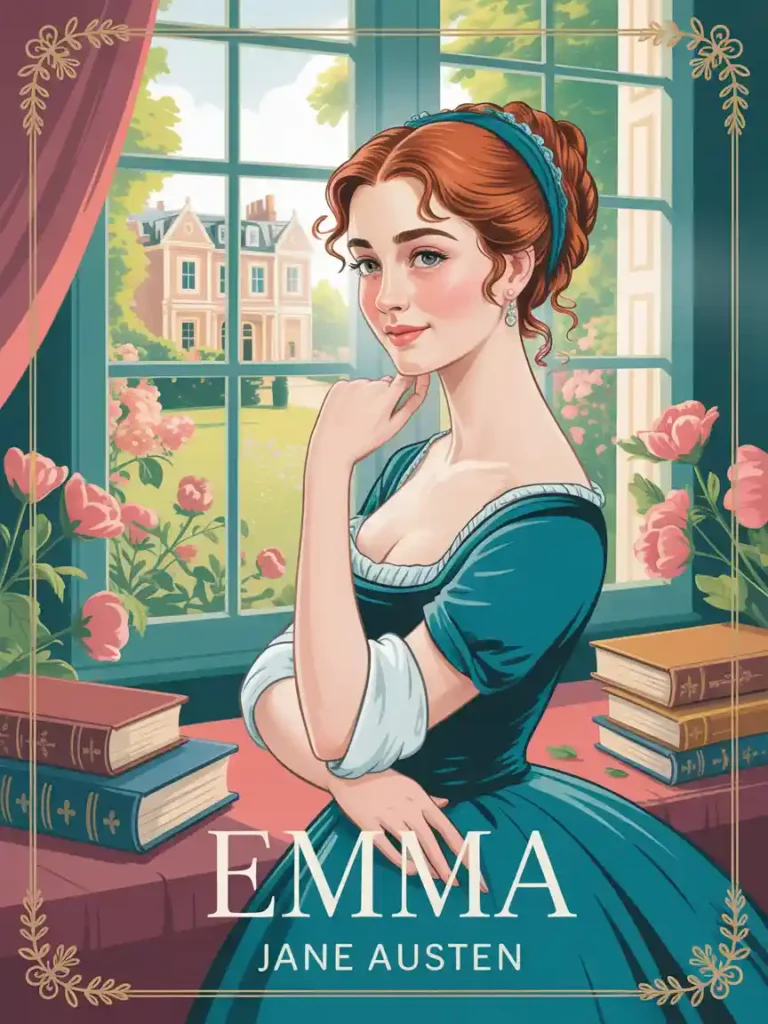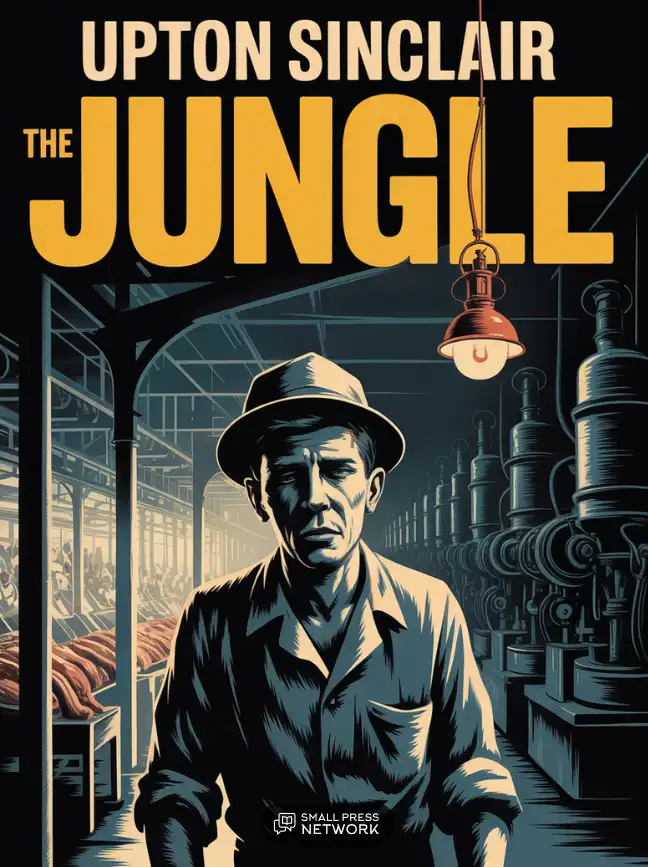Chapter XIX.
If Emma had still, at intervals, an anxious feeling for Harriet, a momentary
doubt of its being possible for her to be really cured of her attachment to
Mr. Knightley, and really able to accept another man from unbiased
inclination, it was not long that she had to suffer from the recurrence of any
such uncertainty. A very few days brought the party from London; and she
had no sooner an opportunity of being one hour alone with Harriet, than she
became perfectly satisfied, unaccountable as it was, that Robert Martin had
thoroughly supplanted Mr. Knightley, and was now forming all her views of
happiness.
Harriet was a little distressed—did look a little foolish at first; but having
once owned that she had been presumptuous and silly, and self-deceived,
before, her pain and confusion seemed to die away with the words, and
leave her without a care for the past, and with the fullest exultation in the
present and future; for, as to her friend’s approbation, Emma had instantly
removed every fear of that nature, by meeting her with the most unqualified
congratulations. Harriet was most happy to give every particular of the
evening at Astley’s, and the dinner the next day; she could dwell on it all
with the utmost delight. But what did such particulars explain? The fact
was, as Emma could now acknowledge, that Harriet had always liked
Robert Martin; and that his continuing to love her had been irresistible.
Beyond this, it must ever be unintelligible to Emma.
The event, however, was most joyful; and every day was giving her fresh
reason for thinking so. Harriet’s parentage became known. She proved to be
the daughter of a tradesman, rich enough to afford her the comfortable
maintenance which had ever been hers, and decent enough to have always
wished for concealment. Such was the blood of gentility which Emma had
formerly been so ready to vouch for! It was likely to be as untainted,
perhaps, as the blood of many a gentleman; but what a connection had she
been preparing for Mr. Knightley, or for the Churchills, or even for Mr.
Elton! The stain of illegitimacy, unbleached by nobility or wealth, would
have been a stain indeed.
No objection was raised on the father’s side; the young man was treated
liberally; it was all as it should be: and as Emma became acquainted with
Robert Martin, who was now introduced at Hartfield, she fully
acknowledged on him all the appearance of sense and worth which could
bid fairest for her little friend. She had no doubt of Harriet’s happiness with
any good-tempered man; but with him, and in the home he offered, there
would be the hope of more, of security, stability, and improvement. She
would be placed in the midst of those who loved her, and who had better
sense than herself; retired enough for safety, and occupied enough for
cheerfulness. She would be never led into temptation, nor left for it to find
her out. She would be respectable and happy; and Emma admitted her to be
the luckiest creature in the world, to have created so steady and persevering
an affection in such a man; or, if not quite the luckiest, to yield only to
herself.
Harriet, necessarily drawn away by her engagements with the Martins,
was less and less at Hartfield, which was not to be regretted. The intimacy
between her and Emma must sink; their friendship must change into a
calmer sort of good-will; and, fortunately, what ought to be, and must be,
seemed already beginning, and in the most gradual, natural manner.
Before the end of September, Emma attended Harriet to church, and saw
her hand bestowed on Robert Martin with so complete a satisfaction, as no
remembrances, even connected with Mr. Elton as he stood before them,
could impair. Perhaps, indeed, at that time, she scarcely saw Mr. Elton, but
as the clergyman whose blessing at the altar might next fall on herself.
Robert Martin and Harriet Smith, the latest couple engaged of the three,
were the first to be married.
Jane Fairfax had already quitted Highbury, and was restored to the
comforts of her beloved home with the Campbells. The Mr. Churchills were
also in town; and they were only waiting for November.
The intermediate month was the one fixed on, as far as they dared, by
Emma and Mr. Knightley. They had determined that their marriage ought to
be concluded, while John and Isabella were still at Hartfield, to allow them
the fortnight’s absence in a tour to the sea-side, which was the plan. John
and Isabella, and every other friend, were agreed in approving it. But Mr.
Woodhouse—how was Mr. Woodhouse to be induced to consent?—he, who
had never yet alluded to their marriage but as a distant event.
When first sounded on the subject, he was so miserable, that they were
almost hopeless. A second allusion, indeed, gave less pain. He began to
think it was to be, and that he could not prevent it—a very promising step of
the mind on its way to resignation. Still, however, he was not happy. Nay,
he appeared so much otherwise, that his daughter’s courage failed. She
could not bear to see him suffering, to know him fancying himself
neglected; and though her understanding almost acquiesced in the assurance
of both the Mr. Knightleys, that when once the event were over, his distress
would be soon over too, she hesitated—she could not proceed.
In this state of suspense, they were befriended, not by any sudden
illumination of Mr. Woodhouse’s mind, or any wonderful change of his
nervous system, but by the operation of the same system in another way.
Mrs. Weston’s poultry-house was robbed one night of all her turkeys,—
evidendy by the ingenuity of man. Other poultry-yards in the
neighbourhood also suffered. Pilfering was house-breaking to Mr.
Woodhouse’s fears. He was very uneasy; and but for the sense of his son-in-
law’s protection, would have been under wretched alarm every night of his
life. The strength, resolution, and presence of mind of the Mr. Knightleys,
commanded his fullest dependence. While either of them protected him and
his, Hartfield was safe. But Mr. John Knightley must be in London again by
the end of the first week in November.
The result of this distress was, that, with a much more voluntary, cheerful
consent, than his daughter had ever presumed to hope for at the moment,
she was able to fix her wedding-day; and Mr. Elton was called on, within a
month from the marriage of Mr. and Mrs. Robert Martin, to join the hands
of Mr. Knightley and Miss Woodhouse.
The wedding was very much like other weddings, where the parties have
no taste for finery or parade; and Mrs. Elton, from the particulars detailed
by her husband, thought it all extremely shabby, and very inferior to her
own. “Very little white satin, very few lace veils; a most pitiful business!
Selina would stare when she heard of it.” But, in spite of these deficiencies,
the wishes, the hopes, the confidence, the predictions of the small band of
true friends who witnessed the ceremony, were fully answered in the perfect
happiness of the union.
THE END.
Endnotes
1 (p. 25) he would read something aloud out of the Elegant Extracts….
Children of the Abbey: Elegant Extracts was one of a number of popular
anthologies for younger readers first published during the 1780s and
reprinted during the early decades of the nineteenth century. The Vicar of
Wakefield, by Oliver Goldsmith, was published in 1766; TheRomance of the
Forest (1791) is by Ann Radcliffe; Regina Maria Dalton Roche wrote the
tale The Children of the Abbey (1796). Although Martin has read the
universally popular novel by Goldsmith, he remains untouched by the
Gothic romances, whose original audiences were said to be very largely
composed of women.
2 (p. 62) My first doth affliction … to soften and heal: The answer is woman
—that is, woe + man. Riddles, charades, and conundrums, popularly used as
pastimes, combine verse and wordplay.
3 (p. 67) “The course of true love never did run smooth”: Emma is quoting
a line from William Shakespeare’s A Midsummer Night’s Dream (act 1,
scene 1).
4 (p. 67) “to speak to him, at Michaelmas”: Harriet is referring to the
season surrounding the feast of Saint Michael, celebrated on September 29.
5 (p. 70) “Kitty, a fair but frozen maid … So fatal to my suit before”: This is
the first stanza of a well-known riddle, said to have been written by actor
David Garrick (1717-1779). The answer is chimney-sweeper.
6 (p. 86) Cobham: This small Surrey town in the south of England is, some
readers have claimed, the model for Highbury. However, no positive
attribution of an actual village has ever been convincingly demonstrated.
7 (p. 94) philippics: Originally this term referred to the heated orations
delivered by the Greek statesman Demosthenes (384—322 B.C.) against
Philip II, the leader of Macedonia. Now “philippic” is used to indicate any
bitter, goading invective.
8 (p. 141) “she fills the whole paper and crosses half”: To conserve paper, a
letter in Jane Austen’s time would be written with script running both
horizontally and either vertically or diagonally on the same sheet.
9 (p. 157) “our lot is cast in a goodly heritage”: This is a slightly
inaccurate reference to the Bible, Psalm 16:5—7 (King James Version).
10 (p. 196) this piano-forte had arrived from Broadwood’s: Broadwood‘s, a
London manufacturer renowned for the quality of its piano-fortes, was a
pioneer in the technological development of the modern instrument.
Beethoven used one of the instruments that they sent him.
11 (p. 218) Cramer: Johann Baptist Cramer (1771—1858), a leading pianist
and prolific composer, founded a successful London music publishing firm
in 1824.
12 (p. 219) “She is playing Robin Adair”: This romantic song, written in the
1750s by Lady Caroline Keppel, describes the singer’s heart-break at
having lost her love, Robin Adair.
13 (p. 245) “They will have their barouche-landau”: This four-seat carriage
had a collapsible top, making it convenient for exploring the countryside or
for taking a turn in the park. Mrs. Elton mentions her brother’s barouche-
landau in order to identify him as a person of wealth and social distinction.
14 (p. 246) “where the waters do agree”: The mineral waters of the resort
town Bath, in Somerset, England, were taken as a restorative for every
conceivable ailment. Bath, as a setting, features prominently in the literature
of Austen’s time.
15 (p. 253) “Full many a flower … on the desert air”: Emma would have
been familiar with these lines from the well-known poem “Elegy Written in
a Country Churchyard,” by Thomas Gray (1716-1771). This is not the only
occasion on which Mrs. Elton inappropriately introduces a quotation.
16 (p. 277) “before Hymen’s saffron robe”: In Greek mythology, Hymen is
the god of marriage. John Milton refers to Hymen’s saffron robe in
“L’Allegro” (1631).
17 (p. 307) a pretty little Tunbridge-ware box: In the eighteenth and
nineteenth centuries, resident artisans in the region of Tunbridge Wells,
Kent, produced wooden boxes, tables, and toys notable for their detailed
wood mosaic inlays.
18 (p. 313) Myself creating what I saw: This is a reference to William
Cowper’s (1731-1800) best-known poem, “The Task.”
19 (p. 351) Goldsmith tells us, that when lovely woman stoops to folly: The
narrator is referring to Oliver Goldsmith’s novel The Vicar of Wakefield
(1766).
20 (p. 363) “the world is not theirs, nor the world’s law”: Emma is
recalling a line from Shakespeare’s Romeo and Juliet (act 5, scene 1), in
which Romeo says, “The world is not thy friend, nor the world’s law; / The
world affords no law to make thy rich.”
21 (p. 375) for chance and circumstance (as second causes): The first cause
is God or religion, in this context a heavenly design. The second cause, in
this case, is chance or circumstance, decidedly undesigned. Austen’s lines
echo Alexander Pope’s The Dunciad IV.
22 (p. 410) “For when a lady’s in the case, … things give place”: These
lines are from the satirical fable “The Hare and Many Friends,” by John
Gay (1685-1732). At the end of the tale, the hounds eat the hare (lady).
23 (p. 417) “in Madame de Genlis’ Adelaide and Theodore”: Emma, like
Austen, probably read the novel Adelaide and Theodore, by Stéphanie
Félicité Brulart de Genlis, marchioness De Sillery, in its 1783 English
translation.
24 (p. 419) “in the building in which N. takes M. for better, for worse”: The
building referred to is the wedding chapel; Emma will use Mr. Knightley’s
first name only during the wedding ceremony. “For better, for worse” are
words taken from that ceremony as it is printed in the Book of Common
Prayer of the Anglican Church.
25 (p. 426) “join their party the same evening to Astley’s”: They are going
to a circus founded by trick rider and theatrical manager Philip Astley (1742
—1814) and held in the Royal Amphitheater of Arts.
Inspired by Emma
FILM
In 1995 four of Jane Austen’s novels were made into films: Ang Lee’s Sense
and Sensibility; Simon Langton’s four-and-a-half-hour miniseries Pride and
Prejudice; the BBC’s production of Persuasion; and Clueless, a
modernization of Emma.
Clueless is particularly innovative in its adaptation of Jane Austen.
Written and directed by Amy Heckerling, the film shifts the story to a
modern-day Beverly Hills high school and an environment furnished with
liposuction, drug abuse, and Starbucks. Alicia Silverstone is irresistible as
the charismatic Cher, the rich, spoiled, and totally irresponsible
matchmaking character based on Emma. She is inviting, affectionate,
warm-hearted, and well-intentioned as she wanders through her plastic
world, always aiming to improve the lives of others. She acts as a
matchmaker for her teachers, makes over a coarse Brooklyn transplant, and
keeps her stressed father’s cholesterol at acceptable levels. The film
reproduces the confused romances of the novel, and the change in period
allows for humorous translations: In the novel, gypsies harass Harriet; in the
movie, boys at the mall hang Tai over the railing. Both subtle and self-
mocking, Clueless was such a hit that it led to a television series—though
one that largely ignored its origins in Jane Austen.
Douglas McGrath’s Emma (1996) is a stricter adaptation of Austen. In this
light and finely toned version, Gwyneth Paltrow shines in the title role,
supported by Toni Collette as Harriet, Jeremy Northam as Mr. Knightley,
Alan Cumming as Mr. Elton, and Ewan McGregor in the role of Frank
Churchill. Paltrow brings to life the nuances of gesture, facial expression,
and manner of Austen’s Emma. The film’s production design is subtle and
precise: in one scene, potted orange trees in a lush room frame a posing
Emma; the lace, curtains, and croquet sets adorning the estates are pitch-
perfect. In the opening sequence, a globe of the world spins amid the stars
as the credits roll by, an ironic gesture that underscores the unimportance of
village life in the grand scheme of things.
A ROOM OF ONE’S OWN
Virginia Woolf invokes Jane Austen with reverence in her landmark
feminist tract A Room of One’s Own (1929). Lamenting the paucity of great
woman writers in history, Woolf ascribes the phenomenon partially to the
fact that writers need privacy to compose their works—a room of their own,
which Austen lacked. Woolf describes the remarkable conditions in which
Austen composed her masterpieces: in the family sitting-room, subject to
frequent interruption, hiding her works with blotting paper whenever
visitors entered. Yet despite these impediments and the confining patriarchal
society in which she lived, Austen was, as Woolf put it, able to compose
“without hate, without bitterness, without fear, without protest, without
preaching. That was how Shakespeare wrote.”
Comments & Questions
In this section, we aim to provide the reader with an array of perspectives
on the text, as well as questions that challenge those perspectives. The
commentary has been culled from sources as diverse as reviews
contemporaneous with the work, letters written by the author, literary
criticism of later generations, and appreciations written throughout the
work’s history. Following the commentary, a series of questions seeks to
filter Jane Austen’s Emma through a variety of points of view and bring
about a richer understanding of this enduring work.
COMMENTS
Sir Walter Scott
We … bestow no mean compliment upon the author of Emma, when we say
that, keeping close to common incidents, and to such characters as occupy
the ordinary walks of life, she has produced sketches of such spirit and
originality, that we never miss the excitation which depends upon a
narrative of uncommon events, arising from the consideration of minds,
manners, and sentiments, greatly above our own. In this class she stands
almost alone; for the scenes of Miss Edgeworth are laid in higher life,
varied by more romantic incident, and by her remarkable power of
embodying and illustrating national character. But the author of Emma
confines herself chiefly to the middling classes of society; her most
distinguished characters do not rise greatly above well-bred country
gentlemen and ladies; and those which are sketched with most originality
and precision, belong to a class rather below that standard. The narrative of
all her novels is composed of such common occurrences as may have fallen
under the observation of most folks; and her dramatis personæ conduct
themselves upon the motives and principles which the readers may
recognize as ruling their own and that of most of their acquaintances. The
kind of moral, also, which these novels inculcate, applies equally to the
paths of common life.
—from Quarterly Review (October 1815)
Charlotte Brontë
I have likewise read one of Miss Austen’s works “Emma”—read it with
interest and with just the degree of admiration which Miss Austen herself
would have thought sensible and suitable—anything like warmth or
enthusiasm; anything energetic, poignant, heart-felt, is utterly out of place
in commending these works: all such demonstration the authoress would
have met with a well-bred sneer…. Her business is not half so much with the
human heart as with the human eyes, mouth, hands and feet; what sees
keenly, speaks aptly, moves flexibly, it suits her to study, but what is the
unseen seat of Life and the sentient target of Death—this Miss Austen
ignores.
—from a letter to W. S. Williams (April 12, 1850)
George Henry Lewes
Jane Austen [is] the greatest artist that has ever written, using the term to
signify the most perfect mastery over the means to her end. There are
heights and depths in human nature Miss Austen has never scaled nor
fathomed, there are worlds of passionate existence into which she has never
set foot; but although this is obvious to every reader, it is equally obvious
that she has risked no failures by attempting to delineate that which she had
not seen. Her circle may be restricted, but it is complete. Her world is a
perfect orb, and vital. Life, as it presents itself to an English gentlewoman
peacefully yet actively engaged in her quiet village, is mirrored in her
works with a purity and fidelity that must endow them with interest for all
time. To read one of her books is like an actual experience of life: you know
the people as if you have lived with them. The marvellous reality and subtle
distinctive traits noticeable in her portraits has led Macaulay to call her a
prose Shakspeare. If the whole force of the distinction which lies in that
epithet prose be fairly appreciated, no one, we think, will dispute the
compliment; for out of Shakspeare it would be difficult to find characters so
typical yet so nicely demarcated within the limits of their kind.
—from Westminster Review (July 1852)
Margaret Oliphant
Emma, perhaps, is the work upon which most suffrages would meet as the
most perfect of all [Miss Austen’s] performances.
—from The Literary History of England (1895)
William Lyon Phelps
Emma has more actual faults than any other of Miss Austen’s persons who
are intended to gain the reader’s sympathy. She is something of a snob,
understands perfectly the privileges of her social rank, and means to have
others understand them as well. She thinks she understands human nature,
and delights to act in the role of match-maker, in which capacity she is a
failure. Best of all, she is ignorant of her own heart, as the most charming
heroines in fiction are wont to be. She does not realise that she loves
Knightley until the spark of jealousy sets her soul aflame. The curious thing
is, that before we finish the book we actually like her all the better for her
faults, and for her numerous mistakes; her heart is pure, sound, and good,
and her sense of principle is as deeply rooted as the Rock of Gibraltar. She
is, however, a snob; and this is the only instance in fiction that I can
remember at this moment where a snob is not only attractive, but lovable.
—from Essays on Books (1914)
Reginald Farrer
‘Emma’ is the very climax of Jane Austen’s work; and a real appreciation of
‘Emma’ is the final test of citizenship in her kingdom. For this is not an
easy book to read; it should never be the beginner’s primer, nor be
published without a prefatory synopsis. Only when the story has been
thoroughly assimilated, can the infinite delights and subtleties of its
workmanship begin to be appreciated, as you realise the manifold
complexity of the book’s web, and find that every sentence, almost every
epithet, has its definite reference to equally unemphasised points before and
after in the development of the plot. Thus it is that, while twelve readings of
‘Pride and Prejudice’ give you twelve periods of pleasure repeated, as many
readings of ‘Emma’ give you that pleasure, not repeated only, but squared
and squared again with each perusal, till at every fresh reading you feel
anew that you never understood anything like the widening sum of its
delights. But, until you know the story, you are apt to find its movement
dense and slow and obscure, difficult to follow, and not very obviously
worth the following.
For this is the novel of character, and of character alone, and of one
dominating character in particular. And many a rash reader, and some who
are not rash, have been shut out on the threshold of Emma’s Comedy by a
dislike of Emma herself. Well did Jane Austen know what she was about,
when she said, ‘I am going to take a heroine whom nobody but myself will
much like.’ And, in so far as she fails to make people like Emma, so far
would her whole attempt have to be judged a failure, were it not that really
the failure, like the loss, is theirs who have not taken the trouble to
understand what is being attempted. Jane Austen loved tackling problems;
her hardest of all, her most deliberate, and her most triumphantly solved, is
Emma.
—from Quarterly Review (July 1917)
Virginia Woolf
Jane Austen is … a mistress of much deeper emotion than appears upon the
surface. She stimulates us to supply what is not there. What she offers is,
apparently, a trifle, yet is composed of something that expands in the
reader’s mind and endows with the most enduring form of life scenes which
are outwardly trivial. Always the stress is laid upon character. How, we are
made to wonder, will Emma behave when Lord Osborne and Tom
Musgrave make their call at five minutes before three, just as Mary is
bringing in the tray and the knife-case? It is an extremely awkward
situation. The young men are accustomed to much greater refinement.
Emma may prove herself ill-bred, vulgar, a nonentity. The turns and twists
of the dialogue keep us on the tenterhooks of suspense. Our attention is half
upon the present moment, half upon the future. And when, in the end,
Emma behaves in such a way as to vindicate our highest hopes of her, we
are moved as if we had been made witnesses of a matter of the highest
importance.
—from The Common Reader (1925)
E. M. Forster
I am a Jane Austenite, and therefore slightly imbecile about Jane Austen.
My fatuous expression and airs of personal immunity—how ill they set on
the face, say, of a Stevensonian! But Jane Austen is so different. She is my
favorite author! I read and re-read, the mouth open and the mind closed.
Shut up in measureless content, I greet her by the name of most kind
hostess, while criticism slumbers.
—from Abinger Harvest ( 1936)
QUESTIONS
1. Speaking of Emma, Jane Austen said “I am going to take a heroine
whom nobody but myself will like much.” What would you say is
likeable and what is hard to like about the character Emma?
2. “One half of the world cannot understand the pleasures of the other,”
says Emma. Do gender differences constitute an important theme in
Emma? Beyond individual differences in personality among the
characters, how do men and women differ in Emma?
3. At the end of the novel, do Emma and Knightley deserve each other?
Why or why not?
4. Even Jane Austen’s most devoted fans agree that she does not directly
deal with extreme passions, heroic tragedies, or world-historical
events. What is it in her work that can appeal to street-tough guys,
jaded sophisticates, and over-educated academics?
For Further Reading
LETTERS
Le Faye, Deirdre. Jane Austen’s Letters. Third edition. Oxford: Oxford
University Press, 1995.
BIOGRAPHY
Honan, Park. Jane Austen: Her Life. New York: St. Martin’s Press, 1987.
Austen-Leigh, James Edward. A Memoir of Jane Austen and Other Family
Recollections. 1870. Edited by Kathryn Sutherland. Oxford and New York:
Oxford University Press, 2002.
Tomalin, Claire. Jane Austen: A Life. New York: Alfred A. Knopf, 1997.
COMMENTARY AND CRITICISM
Brown, Julia Prewitt. Jane Austen’s Novels: Social Change and Literary
Form. Cambridge, MA: Harvard University Press, 1979.
Butler, Marilyn. Jane Austen and the War of Ideas. Oxford: Clarendon
Press, 1975.
Copeland, Edward, and McMaster, Juliet, eds. The Cambridge Companion
to Jane Austen. Cambridge and New York: Cambridge University Press,
1997.
Lynch, Deidre, ed. Janeites: Austen’s Disciples and Devotees. Princeton,
NJ: Princeton University Press, 2000.
Johnson, Claudia L. Jane Austen: Women, Politics, and the Novel. Chicago:
University of Chicago Press, 1988.
Poovey, Mary. The Proper Lady and the Woman Writer: Ideology as Style in
the Works of Mary Wollstonecraft, Mary Shelley, and Jane Austen. Chicago:
University of Chicago Press, 1984.
Southam, B. C., ed. Jane Austen: The Critical Heritage. Vol. 1: 1811—
1870; Vol.
2: 1870—1940. London and New York: Routledge and K. Paul, 1968,
1987. Tanner, Tony. Jane Austen. Cambridge, MA: Harvard University
Press, 1986. Trilling, Lionel. “Emma and the Legend of Jane Austen.” In
Beyond Culture.
New York: Viking, 1965.
a
Four-person card game.
b
Mild form of frostbite in which the hands and feet swell from excessive exposure to cold.
c
Ornamental ribbon or rosette worn on a hat.
d
Person who sells cloth. †Gossip.
e
Cultured, refined.
f
Whist is a four-person card game.
g
Book made by folding whole sheets of paper twice to produce four leaves out of each original sheet.
h
See page 70 and endnote 5.
i
Stayed.
j
Health and vacation resort on England’s North Sea coast.
k
Et cetera.
l
Seven nights, or a week.
m
Small carrying case for needlework tools.
n
Short jacket.
o
Encounter (French).
p
Love of one’s country (Latin).
q
One of the smaller keyboard instruments that were manufactured in the course of the development of
the modern piano; today the term refers specifically to a small and compact upright piano.
r
Extravagant.
s
It was customary to send food that needed to be cooked in an oven to the local bakery.
t
Busily, done with great attention.
u
Fence.
v
Dear husband (Italian).
w
Sweet cakes made specifically for parties.
x
That is, the Devil.
y
To treat with medicine.
z
Silk-based skin covering applied to minor cuts or bruises; an early form of what today we call an
adhesive bandage.
aa
Small drop-leaf table.
ab
Possibly the word “pardon.”
ac
Remainder.
ad
In the open air (Italian).
ae
Agriculture.
af
A cameo is normally a medallion made out of semiprecious stone or shell, with a figure or profile
carved in raised relief; often set in a brooch, pendant, or ring.
ag
Type of wine.
ah
Escort charged with preserving propriety.
ai
Poem in which the initial letters of each line spell out a word.
aj
One who cavils—that is, raises petty objections.
ak
Abbreviation for ultimo (Latin), meaning “last”; indicates the month preceding the present.
al
Woman’s drawstring bag.
am
Sent to boarding school, as a son would be.





